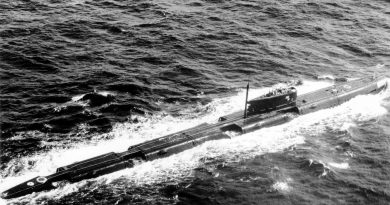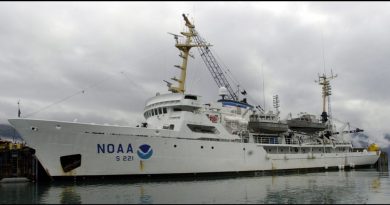IMO greenhouse gas emission strategy needs teeth, says int’l Inuit org
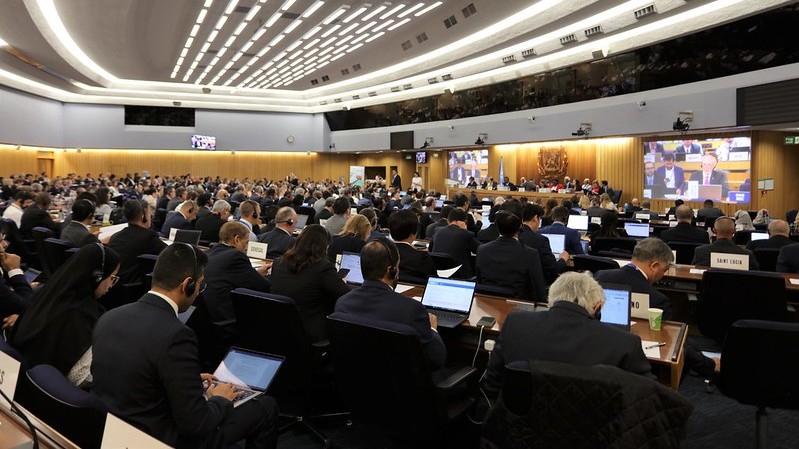
The International Maritime Organization adoption of a revised, greenhouse gas emission (GHG) reduction strategy is a step in the right direction, but lacks the teeth needed to protect Arctic communities, says the Inuit Circumpolar Council (ICC).
“Unfortunately, the IMO negotiations in London last week did not result in setting a 1.5 degree aligned GHG reduction pathway for the global shipping sector,” ICC Vice Chair Lisa Koperqualuk said in a statement this week.

“While a new reduction target of net zero ‘around 2050’ was agreed, along with 2030 and 2040 ‘checkpoints’, the elements and measures to get there remain vague and non binding.”
The IMO is the UN agency that develops international shipping standards and works with countries to implement them.
The Marine Environment Protection Committee (MEPC 80) met July 3-7 and adopted the 2023 IMO Strategy on Reduction of GHG Emissions from Ships. The MEPC are responsible for tackling environmental issues the IMO has authority over.
“Monumental development”
IMO Secretary-General Kitack Lim described the revised strategy as ” a monumental development” in reducing carbon emissions in the maritime industry.
“The adoption of the 2023 IMO Greenhouse Gas Strategy is a monumental development for IMO and opens a new chapter towards maritime decarbonization,” he said.
“At the same time, it is not the end goal, it is in many ways a starting point for the work that needs to intensify even more over the years and decades ahead of us. However, with the Revised Strategy that you have now agreed on, we have a clear direction, a common vision, and ambitious targets to guide us to deliver what the world expects from us.”
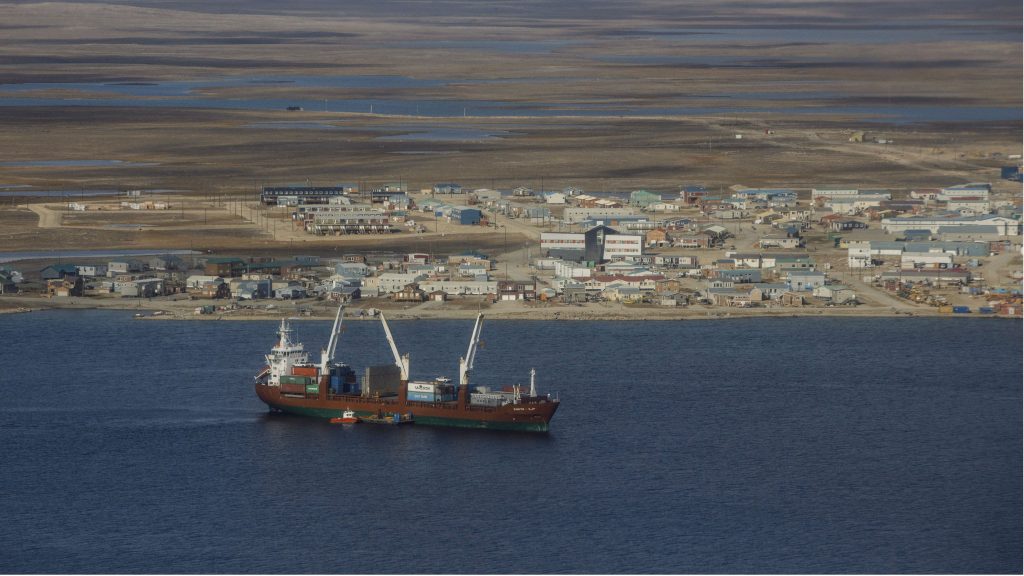
- Improve energy efficiency for new ships, including design requirements
- Decrease international shipping’s carbon footprint, by reducing CO2 emissions at least 40% by 2030, compared to 2008
- Push for at least five per cent, but aiming for 10 per cent of the energy used in international shipping to come from clean, low-emission technologies, fuels, and energy sources
- Reduce greenhouse gas emissions from international shipping to net-zero by around 2050
Source: International Maritime Organization
Lim said work now has to be done to make sure all countries have what they need to tackling emissions in their respective shipping sectors.
“Above all, it is particularly meaningful, to have unanimous support from all Member States. In this regard, I believe that we have to pay more attention to support developing countries, in particular SIDS and LDCs, so that no one is left behind,” he said.
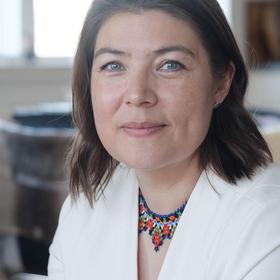
Inuit voices need to be heard
ICC reiterated its call from last week that Indigenous and Inuit perspectives need to be incorporated into the IMO strategy as well as to address the shipping sector’s contribution to black carbon pollutants.
“In addition to implementing the UN Declaration on the Rights of Indigenous Peoples (UNDRIP), the Revised IMO GHG Reduction Strategy and its implementation must ensure the inclusion of Indigenous perspectives, approaches, decisions, and knowledge,” ICC’s International Chair Sara Olsvig said.
Koperqualuk, from Nunavik in northern Quebec, said with the Arctic climate warming four times faster than the rest of the world, it’s imperative that voices from those communities be heard.
“Inuit communities are making necessary adaptations and adjustments, while dealing with the inequities caused by historical and contemporary policies made without our participation,” she said.
“The [2023 Intergovernmental Panel on Climate Change’s sixth assessment report] recognizes that preventing or reducing severe risks in highly vulnerable regions like the Arctic requires a collective effort. It acknowledges the importance of involving Indigenous Peoples, such as Inuit, in climate change governance and promoting collaboration between the diverse knowledge systems.”
ICC represents the approximately 180,000 Inuit in Alaska, Canada, Greenland, and Chukotka, Russia. It received provisional consultative status at the International Maritime Organization in 2021.
Comments, tips or story ideas? Contact Eilís at eilis.quinn(at)cbc.ca
Related stories from around the North:
Canada: Qanittaq Clean Arctic Shipping Initiative gets $91.6 million from Ottawa, Eye on the Arctic
inland: Finland investigates oil leak risks from Baltic Sea shipwrecks, Yle News
Iceland: Iceland to restrict heavy fuel oil use in territorial waters, Eye on the Arctic
Norway: LNG-reloading operations end in Norway’s Arctic waters, The Independent Barents Observer
Russia: Shipping figures rising on Russia’s Northern Sea Route, The Independent Barents Observer
United States: Carnival Corporation ships switch to cleaner fuel on Arctic cruises, Radio Canada International

